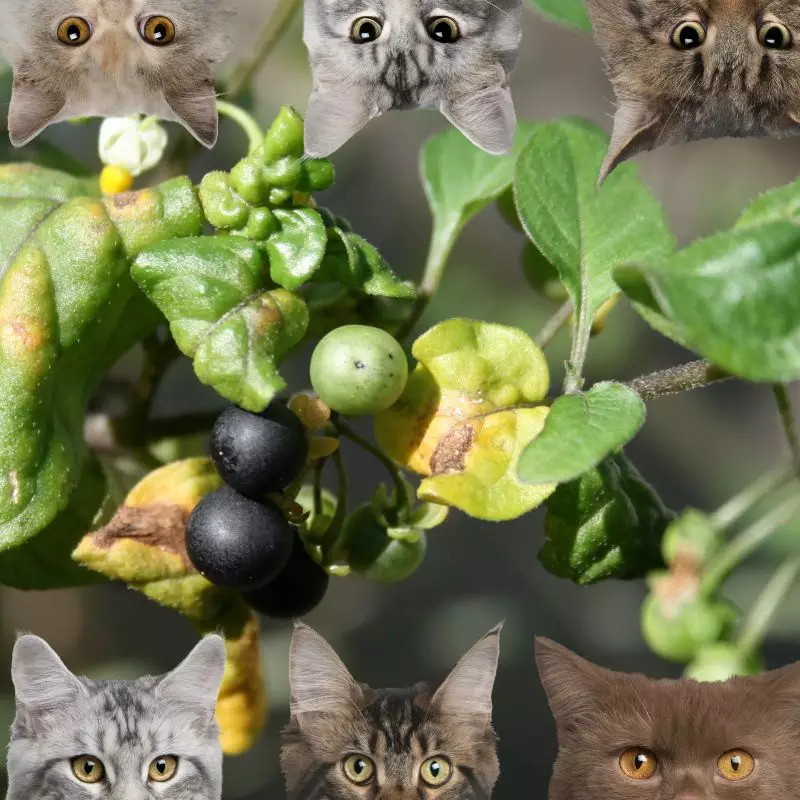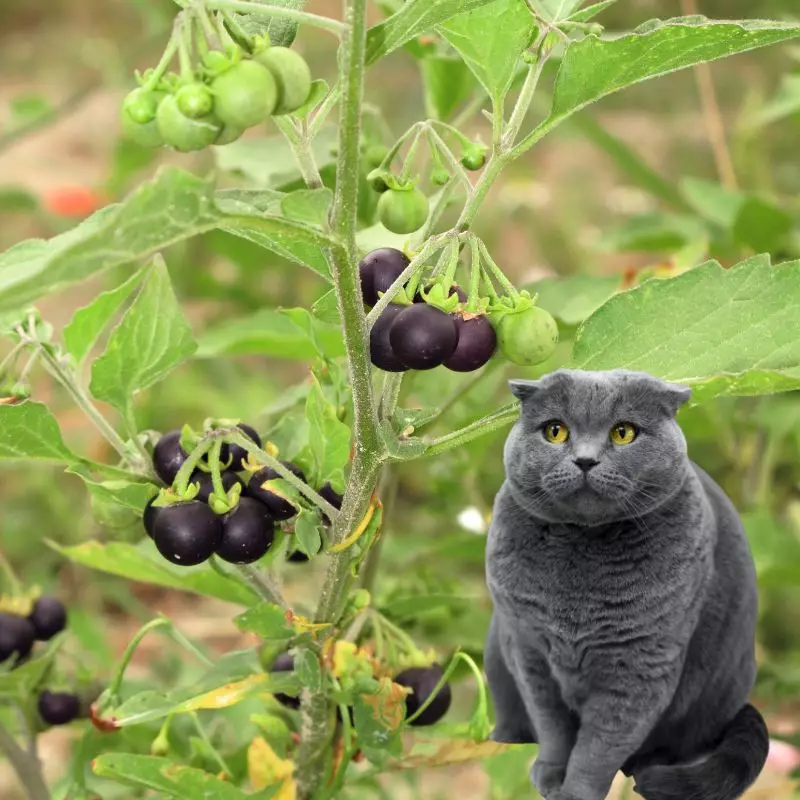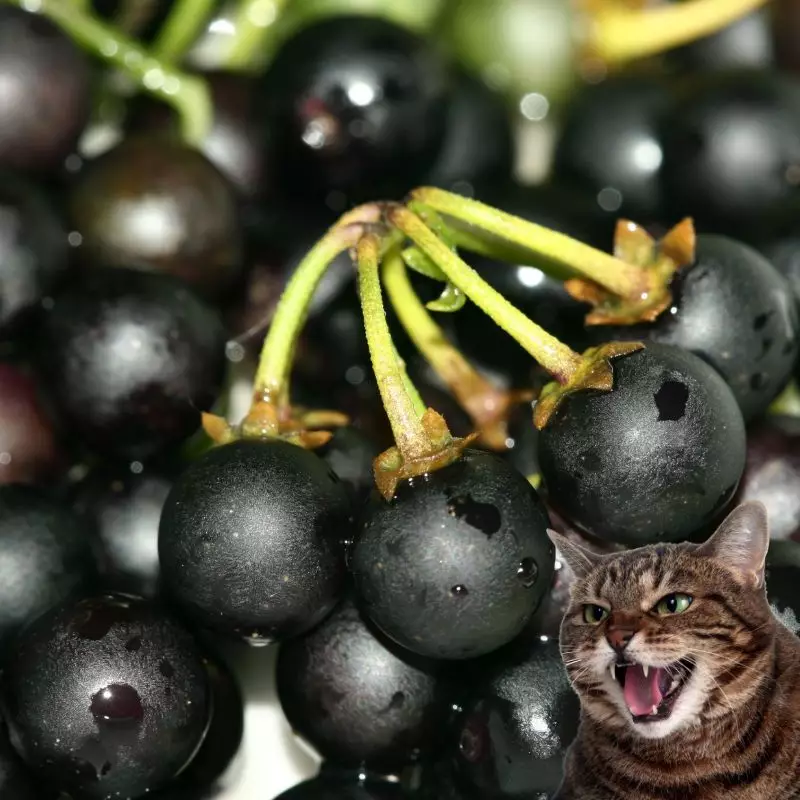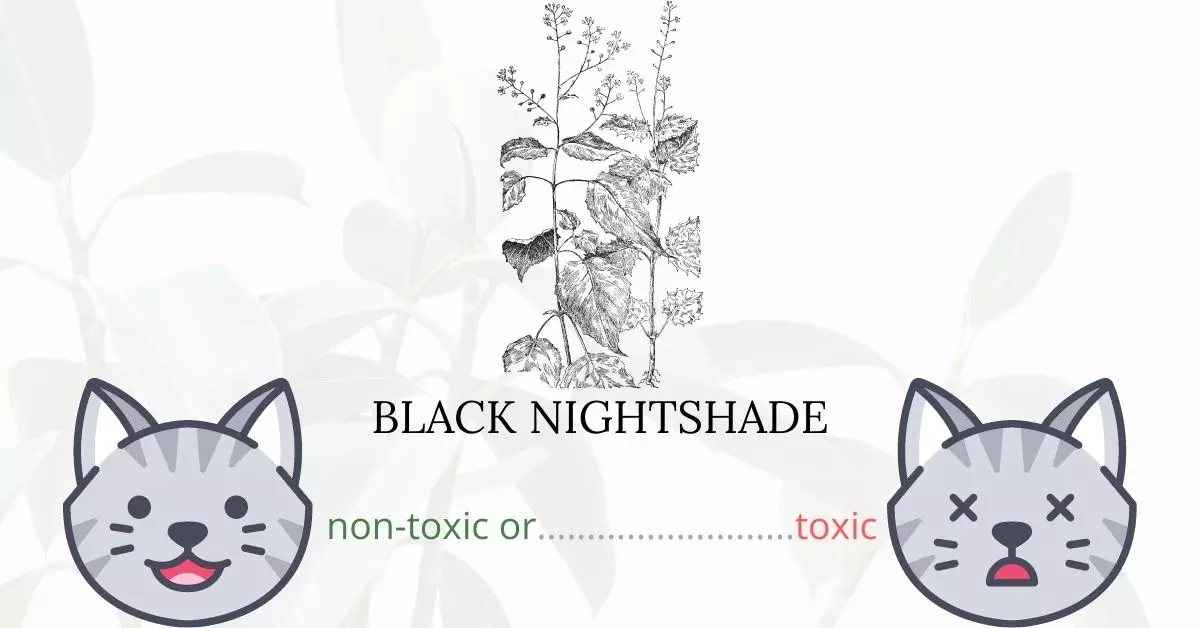Black nightshade, scientifically distinguished from the “Deadly nightshade,” is indeed toxic to cats. When ingested, this plant contains a chemical component called steroidal glycoalkaloid solanine, which breaks down into potent alkaloids affecting the neurological system, potentially leading to symptoms such as hallucinations. In addition, other toxins present in black nightshade can harm different parts of a feline’s body.
This article has been diligently crafted in collaboration with a team of experienced DVMs (doctors of veterinary medicine). Their invaluable contributions have enabled us to offer accurate and current insights regarding the potential risks various plants, such as Black Nightshade, pose to cats. Moreover, we have cross-referenced our findings with high-authority websites including ASPCA and PetMD to ensure comprehensive and trustworthy information.
Clinical Signs of Black Nightshade Poisoning in Cats

When a cat comes into contact with, inhales, or consumes the Black Nightshade plant, a series of concerning symptoms can manifest. These symptoms typically develop within six to twelve hours post-exposure. Recognizing these early can be critical to ensuring prompt and effective medical intervention. Here’s an overview of the clinical signs, alongside an explanation for their occurrence:
- Appetite Loss: The toxins in the plant can affect a cat’s digestive system, making them feel nauseated, which results in a reduced desire to eat.
- Bloat: The plant’s toxins can disrupt the normal function of the gastrointestinal system, leading to gas accumulation and a distended abdomen.
- Confusion: The neurological impacts of the toxins can leave a cat disoriented and bewildered.
- Diarrhea: As the body tries to expel the harmful substances, it might result in rapid bowel movements.
- Vomiting: A direct response to the ingested toxins, the body attempts to rid itself of the harmful components.
- Drowsiness: The plant’s chemicals can depress the central nervous system, leading to a state of lethargy or sedation.
- Depression: Neurotoxic effects might also alter a cat’s mood, making them seem unusually low or unresponsive.
- Dilated Pupils: A sign of neurological distress, the pupils might enlarge as a reflex action to the toxins.
- Drooling Excessively: The plant’s bitter taste or the onset of nausea can stimulate excessive salivation.
- Jaundice: This indicates liver distress, possibly caused by the toxins damaging liver cells.
- Trembling: The neurotoxins can interfere with muscle function, leading to uncontrolled shaking or trembling.
- Numbness: Resulting from disruptions in the nervous system, certain areas, especially around the mouth or paws, might feel numb after contact.
- Weakness: A general state of malaise due to the body’s adverse reaction to the ingested or contacted toxins.
If your feline companion exhibits any of these signs after potentially coming into contact with Black Nightshade, it is imperative to consult with a veterinarian immediately.
First Aid and Treatment of Black Nightshade Poisoning in Cats

Just like other poisoning cases that affect the cat’s respiratory system, the main focus during treating black nightshade poisoning is to address all symptoms and provide support to the respiratory system.
Inducing vomiting can remove most of the toxins out of the cat. Do not try inducing vomit by yourself at home. Consult a veterinarian for professional care and safety.
Your cat can be given activated charcoal to help neutralize the effects of toxins in the digestive tract. The vet may administer intravenous fluids containing electrolytes that can aid in the cat’s stabilization. If the disease is serious, feeding tubes and oxygen supplements may be required. If the cat is suffering from seizures, diazepam may be given.
Recovery from Black Nightshade Poisoning in Cats

The cat’s recovery will be influenced by how much black nightshade was consumed and how long it took for treatment to be initiated. If the cat just ate a little bit of the plant, he or she will most likely recover within a few hours after receiving supportive care and treatment. Black nightshade poisoning can be fatal if it causes respiratory issues or significant organ damage.
Prevention of Black Nightshade Poisoning in Cats
Avoid another incident of black nightshade exposure by removing this plant from your yard. If there are black nightshades that grow in your area, minimize your cat’s activity outside your home. Ensure that your cat stays at home by keeping him or her occupies indoors. Install fences and safety nets around your house to minimize the chance of your cat straying away far from your home.
If you love plants but have cats at home, check out these lists:





